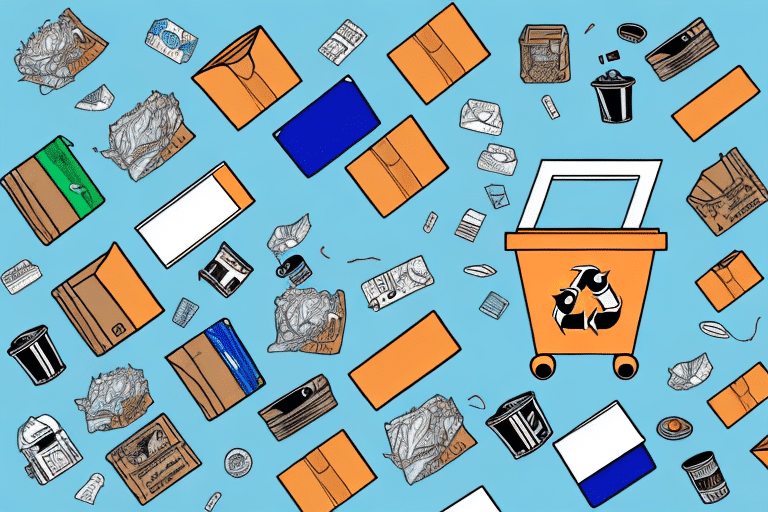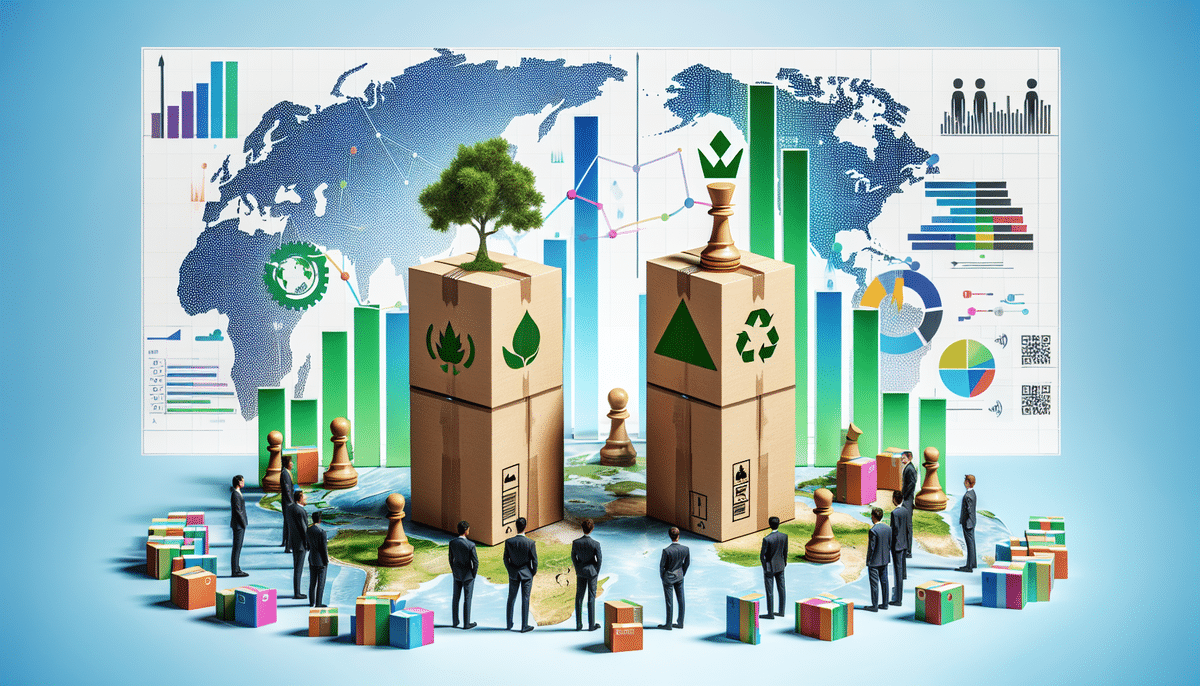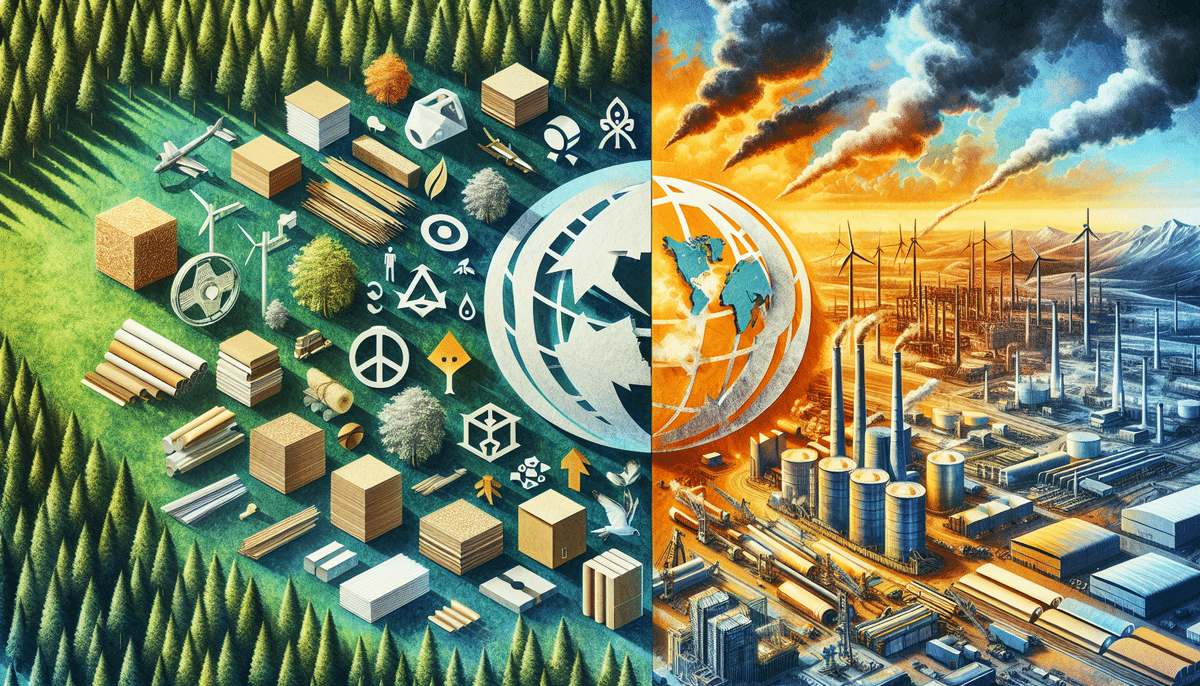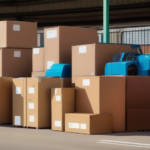Why Recycling Online Shipment Packages Matters
The surge in e-commerce over recent years has significantly increased packaging waste. Recycling your shipment packages is essential for multiple reasons:
- Environmental Protection: Reduces landfill waste and greenhouse gas emissions.
- Resource Conservation: Minimizes the need for raw materials like trees and petroleum.
- Economic Benefits: Lowers costs for businesses and consumers by reusing materials.
Environmental Benefits
Recycling helps decrease the amount of waste in landfills, which in turn lowers the production of methane, a potent greenhouse gas. According to the Environmental Protection Agency, recycling one ton of paper can save 17 trees and 7,000 gallons of water.
Economic Advantages
Businesses can reduce packaging costs by reusing materials, potentially passing these savings onto consumers. Additionally, consumers can reuse packaging for personal shipping needs, avoiding the purchase of new packing materials each time.
Understanding Packaging Materials
Different packaging materials require distinct recycling processes. Knowing what your packaging is made of ensures proper disposal and maximizes recycling efficiency.
Recyclable Materials
- Cardboard and Paper: Widely accepted by recycling programs.
- Metal and Glass: Infinitely recyclable without quality loss.
Non-Recyclable Materials
- Styrofoam: Requires specialized recycling facilities.
- Certain Plastics: Not all plastic types are accepted; check recycling symbols.
Steps to Properly Recycle Your Packages
Effective recycling begins with proper preparation of your packaging materials:
Sorting and Cleaning
- Remove tape, labels, and any staples.
- Ensure materials are dry and clean to prevent contamination.
Disassembling and Flattening Boxes
Flatten cardboard boxes to save space and facilitate processing at recycling facilities. Remove any plastic or foam inserts and recycle them separately if possible.
Recycling Plastic Packaging
Check with your local recycling program to see if they accept materials like bubble wrap and packing peanuts. If not, consider reusing these materials or donating them to local businesses.
Upcycling and Reducing Packaging Waste
Beyond recycling, upcycling offers creative ways to reuse packaging materials:
Creative Upcycling Ideas
- Storage Solutions: Use cardboard boxes to organize household items.
- DIY Projects: Turn packaging into art projects or playhouses for children.
Sustainable Shopping Habits
- Opt for retailers that use eco-friendly packaging.
- Choose bulk purchases to reduce packaging waste.
- Use reusable bags and containers whenever possible.
Finding Recycling Resources and Support
Accessing local recycling programs and resources can simplify the recycling process:
Local Recycling Programs
Contact your local government or waste management organizations to learn about available recycling options. Websites like Earth911 provide searchable databases for recycling centers by zip code.
Alternative Packaging Solutions
Consider alternative packaging options such as biodegradable materials or recycled content packaging. Supporting companies that prioritize sustainability can drive broader industry changes.
The Future of Sustainable Packaging in E-commerce
As consumer awareness grows, the e-commerce industry is increasingly adopting sustainable packaging practices. Innovations include:
- Biodegradable Materials: Packaging that breaks down naturally without harming the environment.
- Recycled Content: Using recycled materials to produce new packaging, reducing the need for virgin resources.
- Minimalist Packaging: Reducing excess packaging to lower waste generation.
By actively participating in recycling and advocating for sustainable practices, consumers can significantly influence the future of eco-friendly packaging in the digital marketplace.
Encouraging Community Recycling Efforts
Promoting recycling within your community amplifies your impact:
Sharing Knowledge
Educate friends, family, and coworkers about the benefits and methods of recycling shipment packages. Hosting workshops or sharing informative articles can foster a culture of sustainability.
Community Initiatives
Organize or participate in local recycling drives and events. Collaborating with local businesses and organizations can expand the reach and effectiveness of recycling programs.
Leveraging Online Platforms
Use social media and online forums to spread awareness and encourage others to join recycling efforts. Sharing success stories and tips can inspire more individuals to take action.
Conclusion: Your Role in Sustainable E-commerce
Recycling online shipment packages is a simple yet powerful way to contribute to environmental sustainability. By understanding the types of materials, properly recycling, upcycling, and promoting sustainable practices, you can help mitigate the negative impacts of e-commerce on the planet. Every small action counts toward a greener, more sustainable future.






















